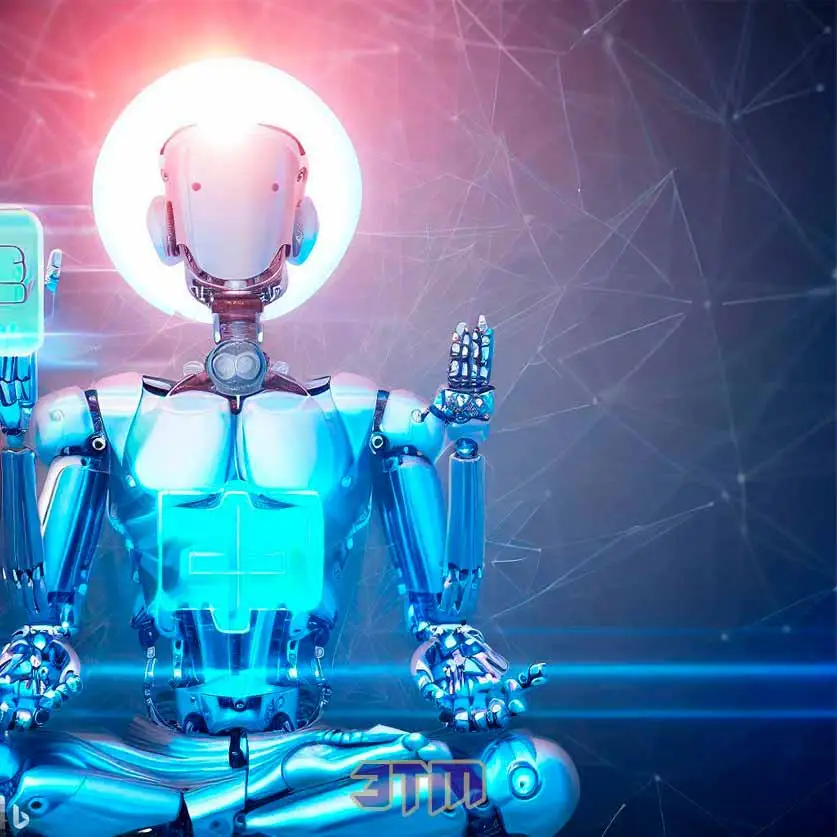Where automation increases, religiosity decreases. Religion is in decline all over the world since the beginning of the 21st century. According to the research results World Value Survey (World Values Survey) In the 2007-2019 study, God’s importance decreased in an average of 39 of the 44 countries studied. In countries such as Singapore, Iceland, Chile and South Korea, the proportion of people who do not identify as religious has increased by more than 10% over the past decade.
The decline of religion is most pronounced in the United States. According to this gallupIn the period from 1940 to 2000, the number of parishioners of the church was about 70%. But with the start of the new millennium, this figure has dropped sharply. By 2020, the share of church members had dropped to 47%. Between 2007 and 2020, the proportion of non-religious Americans increased from 16% to 30%.
Belief and worship of supernatural beings, gods, and deities has been a fundamental aspect of human existence for thousands of years, but the decline of religion is taking place in a historic moment! How can this revolution in world society be explained?
Religiosity has disappeared
As a possible explanation, scientists suggest paying attention to technological progress. In the past, in search of answers and solutions to problems, people turned to religious belief. Now we have the technology.
An international group of researchers wrote in an article recently published in Proceedings of the National: “As people began to use technology to predict the weather, diagnose and treat diseases, and generate resources, they came to rely less on religious beliefs and practices.” Academy Sciences.
But if technology obliterates the need for religion, why haven’t we seen a major decline in faith during the industrial revolution, the space race, or the advent of personal computers? Why has the decline of religion become so widespread and rapid lately?
The researchers put forward their own hypotheses: Religiosity is being reduced not by technology alone, but by automation in the form of robotics and artificial intelligence, which is discernible in the 21st century.
“This statement is based on the most recent research into the population’s perception of automation,” the authors write. – This type of research shows that humans attribute supernatural abilities to automated technologies. Historically, humans have enlisted the help of supernatural forces and religious experts to solve instrumental problems beyond human abilities. But these issues seem more important to people who work and live in highly automated areas.”
Automation and disbelief
To test their hypothesis, the researchers conducted four experiments. In the first, they tracked the decline in religiosity between 2006 and 2019 in 68 countries around the world and asked more than 2 million respondents a yes or no question: “Is religion an important part of your daily life?” They then correlated this data with the annual operating inventory of industrial robots in each country.
“Robotics is consistently and negatively associated with religiosity worldwide,” the study said. This relationship is preserved when the GDP per capita level, the development of telecommunications and energy are compared.
In the next experiment, the scientists focused on the decline in religiosity in the United States alone, comparing religiosity with the growth of robotics in megacities between 2008 and 2016.
“Metropolitan cities where robotic growth rates are higher have seen an annual decline of about 3% per decade in religiosity,” they reported.
In a third experiment, researchers followed 46,680 residents in the same settlement between 2009 and 2020, measuring their belief in God and the level of automation in their workplaces. It turned out that people working in workplaces with greater exposure to artificial intelligence and robotics reported significantly larger declines in religiosity over time.
“People working in workplaces with one standard deviation above average for AI exposure were 45% less likely to believe in God than people working at workplaces with average AI exposure,” the authors write.
The fourth experiment was carried out at the local level. By tracking an organization’s 238 employees over time, the scientists directly measured their sensitivity to AI influence and religiosity. It turns out that the impact of artificial intelligence is associated with a decrease in religious beliefs.
All studies are correlational and do not prove cause and effect. But all together they convincingly confirm the authors’ claim that automation reduces religious beliefs.
“Our research shows that automation is associated with reduced belief in different religious traditions (e.g. Christian, Muslim, and Buddhist), regions of the world (e.g. North America, South Asia, and Oceania), and different levels of analysis,” they comment. them. Their findings mirror those of other scientists, including Neil McArthur, director of the Center for Professional and Applied Ethics at the University of Manitoba. INSIDE
Earlier this year in the magazine Speech He predicted that some people might start worshiping artificial intelligence instead of gods. Prolific AI like ChatGPT already has traits often associated with gods, such as immortality, seemingly limitless intelligence, and the absence of human weaknesses such as pain and hunger. The global decline of religion may continue and even accelerate as the popularity and power of artificial intelligence grows. Source
Source: Port Altele
